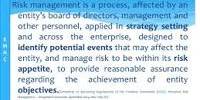Delegated voting, also known as proxy voting or proxy representation, is the process by which individuals delegate their voting rights to another person to vote on their behalf. It is widely used in a variety of decision-making contexts, including corporate governance, political elections, and organizational voting.
The proxy is transitive and the transfer is recursive in delegated voting. Simply put, the vote may be delegated further to the proxy’s proxy, and so on. This is also known as delegate cascade or transitive proxy. Lewis Carroll proposed delegates voting as early as 1884.
A person known as the delegate or proxy is entrusted with the responsibility of casting votes on behalf of others who have delegated their voting rights in delegated voting. Depending on the context, the delegates can be individuals, organizations, or even software programs.
Delegated voting can provide several benefits, such as:
- Efficiency: Delegating voting rights can streamline decision-making processes, especially in large organizations or political systems where direct voting by all participants may be time-consuming or impractical.
- Expertise: Delegating votes allows individuals to entrust their decision-making to someone with more expertise or knowledge in a particular area. For example, shareholders may delegate their voting rights to a proxy advisor who specializes in analyzing corporate governance issues.
- Convenience: Individuals who are unable or prefer not to participate directly in voting processes may find delegated voting useful. They can appoint a trusted proxy to represent and vote on their behalf.
- Representation: Delegated voting allows for better representation of diverse interests and points of view. Votes from multiple individuals can be consolidated and cast collectively by proxy representatives, potentially leading to more balanced and inclusive decision-making outcomes.
Demoex, a Swedish local political party, uses delegate voting. Demoex was elected to the Vallentuna City Council in Sweden for the first time in 2002. Mitthögskolan University evaluated the party’s first years of activity in a paper written by Karin Ottesen in 2003. A voter can vote directly in Demoex even if she has delegated her vote to a proxy; the direct vote takes precedence over the proxy vote. It is also possible to change the proxy at any time.
















